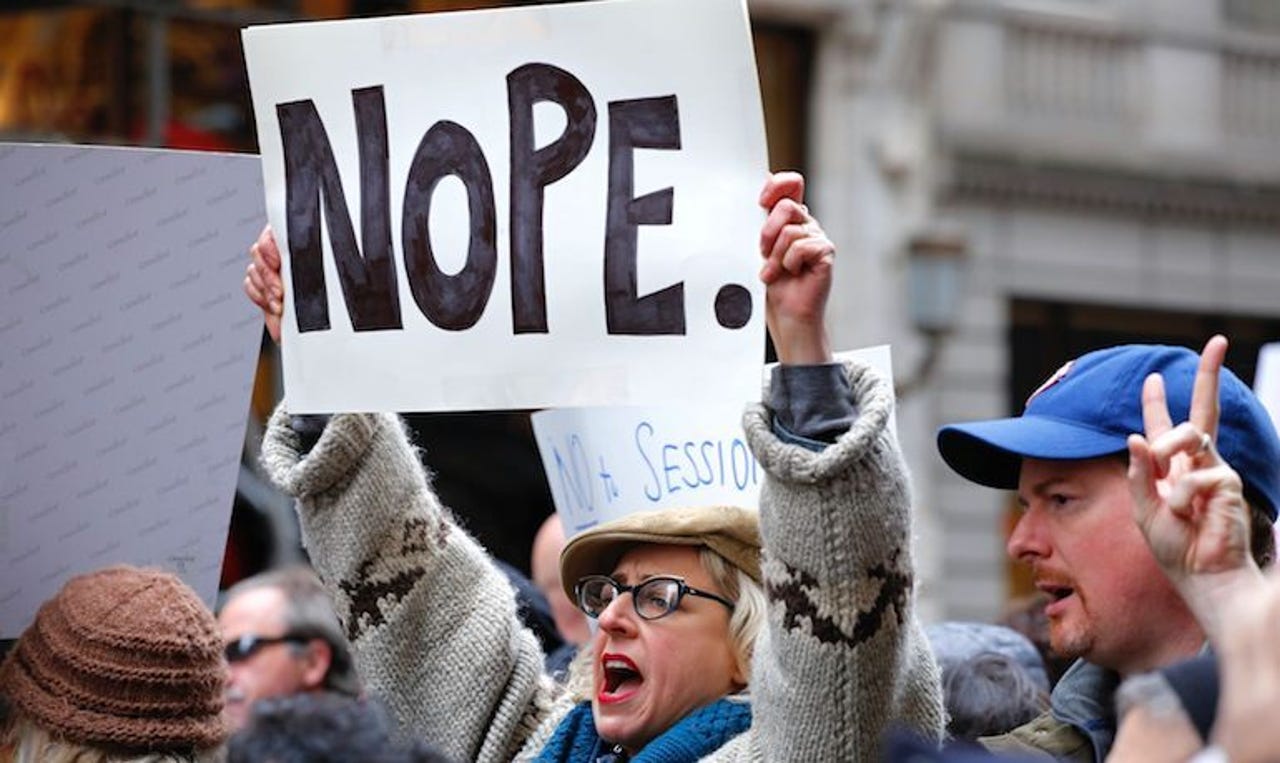Twitter to clamp down on QAnon activity


Twitter has announced it will begin to clamp down on QAnon accounts on its network, stating it is in line with its policy to take action on behaviour that could lead to offline harm.
Activity related to the conspiracy theory will no longer be seen in trends or recommendations, will no longer be highlighted in search or conversations, and Twitter will look to block related URLs from being shared.
"These actions will be rolled out comprehensively this week. We will continue to review this activity across our service and update our rules and enforcement approach again if necessary," Twitter said through its safety account.
"As we work at scale to protect the public conversation in the face of evolving threats, we'll continue to lead with transparency and offer more context on our efforts."
The social network said it would also be permanently banning QAnon accounts that violate its multi-account policy, skirt suspensions, and co-ordinate abuse of individual victims after noticing an uptick in recent weeks.
The conspiracy theory kicked off on the internet sewer and forum known as 4chan, and revolves around the idea that US President Donald Trump is fighting against a so-called deep state made up of global elites.
See also: Facebook comments manifest into real world as neo-luddites torch 5G towers
In August last year, Yahoo News reported the FBI identified "fringe conspiracy theories", such as QAnon, were domestic terror threats.
"The FBI assesses these conspiracy theories very likely will emerge, spread, and evolve in the modern information marketplace, occasionally driving both groups and individual extremists to carry out criminal or violent acts," Yahoo News reported a document as saying.
Supporters of the movement have made inroads into US politics and the Republican party, with the Oregon GOP primary for its Senate nominee being taken out by a QAnon supporter, who will be on the ticket for November's election.
On US Independence Day, President Trump retweeted content from QAnon supporters 14 times, according to Politico.
Last week, Twitter fell foul of a social engineering attack that led to a number of high profile accounts, including Barrack Obama, Joe Biden, Bill Gates, Elon Musk, and Jeff Bezos, promoting a bitcoin scam.
The attackers were able to download the data of eight accounts, Twitter said, but none of those accounts were verified accounts.